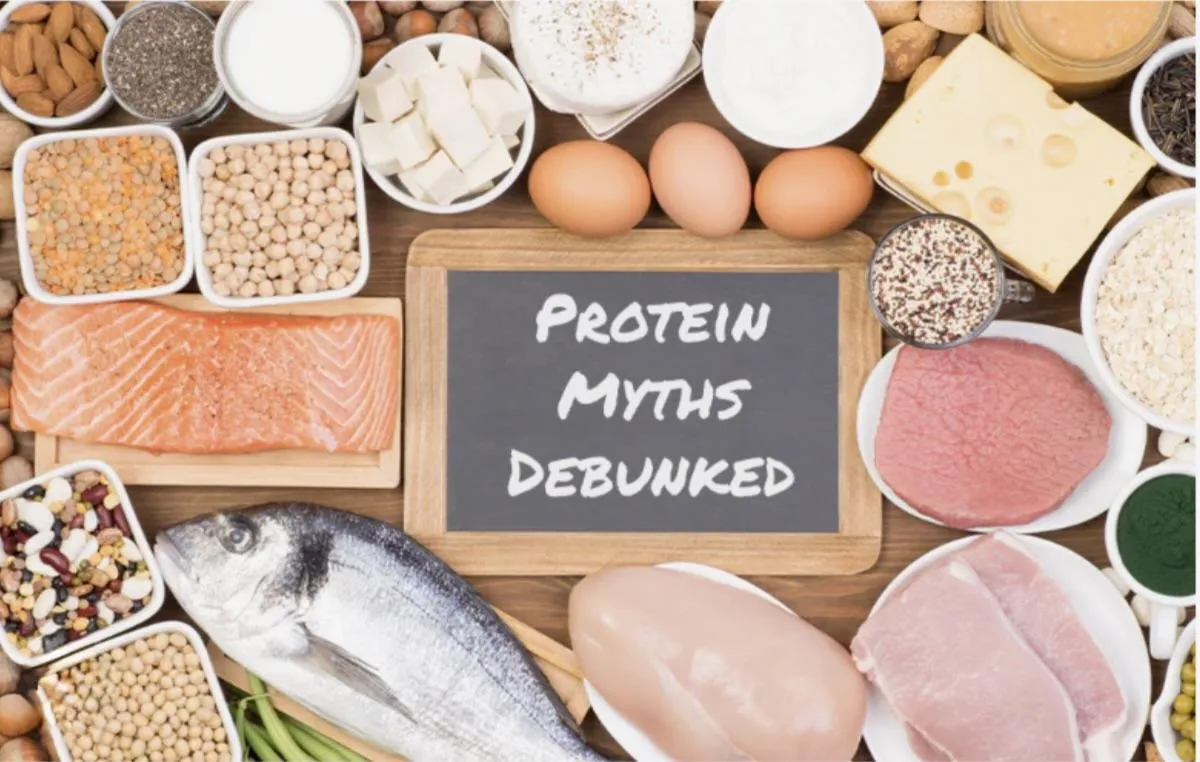
8 Protein Myths You’ve Probably Heard--Here's The Truth
Protein is everywhere these days, from popcorn to cookies.
The messaging ranges from "Shoot for at least 100 g. of protein per day" to "This is overblown. Americans get more than enough protein."
The New York Times weighed in recently. Much of their info was based on outdated research and persistent myths.
Here's the most current information--and what the NYT got wrong.
Myth #1: You can only absorb 30 grams of protein per meal
This old myth just won’t go away.
Eating 100 grams of protein produced a stronger, longer-lasting muscle-building response than just 25 grams.
Good news for people who eat 2 meals a day--just remember that your body makes the most of protein eaten early in the day. Breakfast is typically the meal where people fall short.
Myth #2: The RDA is your ideal protein goal
The RDA isn't your optimal protein intake.
It's the minimum to avoid deficiency.
The RDA for protein is 0.36 grams per pound. Based on research from people I trust, we recommend .7 grams per pound of your ideal body weight.
To build muscle, you may need more. Some people go as high as 1 gram per pound with no ill effect.
Myth #3: Most people already get enough protein
Or so the NYT believes.... They haven't met the people we work with who report having "2 bran muffins and strawberries and cream" for breakfast.
One client wasn't gaining muscle until we bumped up her protein. Her muscle mass increased dramatically.
Myth #4: High protein intake harms your kidneys
Your kidneys have more work to do but it isn’t harmful in healthy people. A protein intake up to 5 times the RDA is safe and has no negative impact on kidney health or function in healthy people.
If you have kidney disease, talk with your doctor before making changes.
Myth #5: High protein intake harms your bones
Protein is essential for bone health. It comprises about 50% of bone volume and one-third of its mass.
A protein intake above the RDA is good for your bones. It can protect against bone loss and osteoporosis.
Myth #6: You need to get protein immediately after a workout
Your overall protein intake is what's important.
The most effective way to gain muscle is to combine a diet that provides 0.7-1.5 grams of protein per pound of ideal body weight with resistance training.
Spacing out protein-rich meals every 3–4 hours helps, since many people don't get much protein until dinner.
Myth #7: Adequate protein requires lots of meat
Most plant-based proteins are “incomplete,” missing or low in one or more amino acids.
Vegetarians and vegans may need 20–40% more protein than meat-eaters to match muscle-building benefits, especially when engaging in resistance exercise.
To get the protein you need from plant sources, consume a variety of plant-based protein sources in meals and snacks.
Complete plant proteins include soy-based foods, pistachios, quinoa, chia seeds, buckwheat, and amaranth.
👉 Adding protein to processed snacks doesn’t make them healthy. 👈
Choose quality proteins from whole foods like lean meats, fish, eggs, nuts, and legumes for the greatest health benefits.